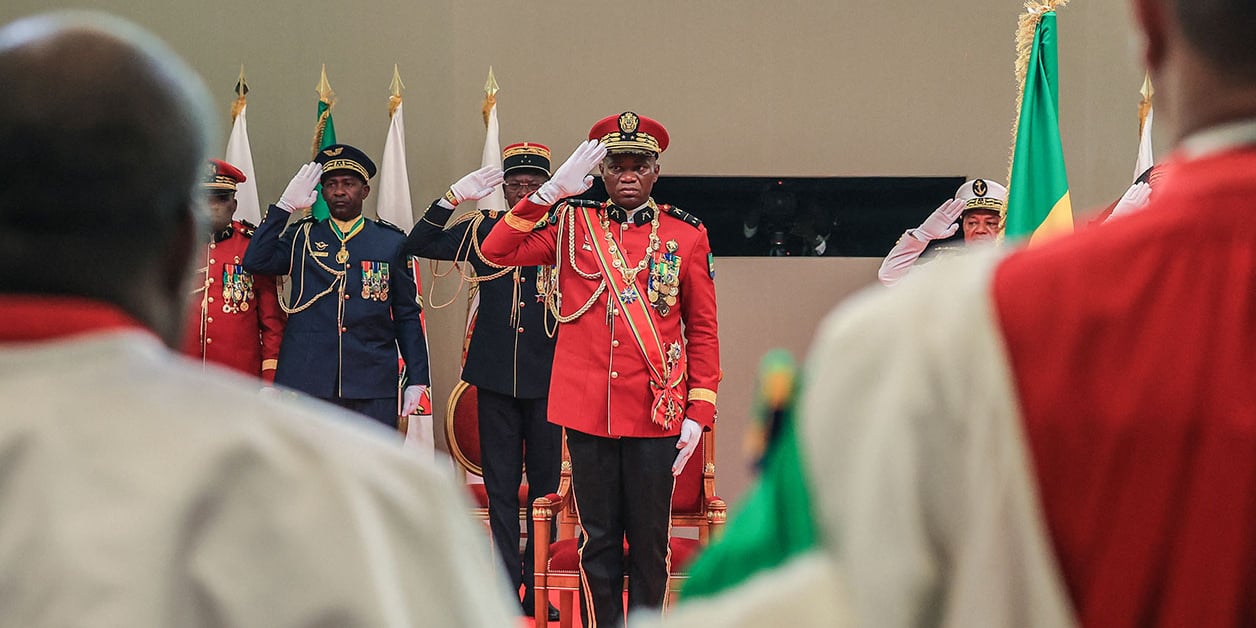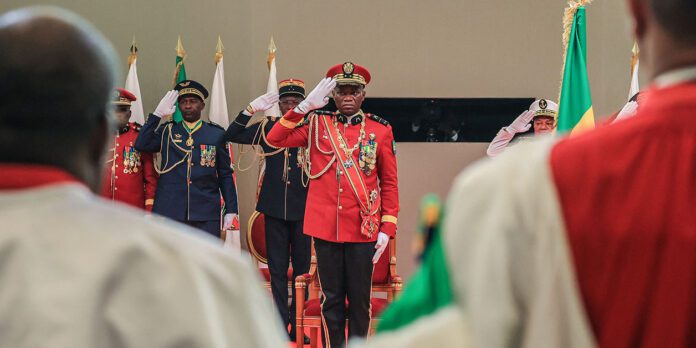
It was in the transition letter that the new head of state took office, on September 4th, but no one had yet managed to read the text. Now it's done, as it has just been published in the official gazette.
Dated September 2, it lists the objectives defined by the Commission for the Transition and Restoration of Institutions (CTRI): State assistance, the implementation of major reforms, but also the adoption of a new Constitution that will have to be validated by referendum, and the implementation of a new Constitution that will have to be validated by a referendum, and the implementation of major reforms, but also the adoption of a new Constitution that will have to be validated by a referendum. holding “free, democratic and transparent” local and national elections at the end of there transition.
Composed of six chapters, the letter is signed by the president, Brice Clotaire Oligui Nguema, and the heads of the country's main armed forces. Among them, Major General Serge Hervé Ngoma, commander-in-chief of the National Police, and Jean Martin Ossima Ndong, chief of the General Staff of the Armed Forces.
President… and candidate?
The military will have a preponderant role in the transition, the duration of which is not included, if we believe the composition of the National Transition Council (CNT), one of the five bodies created. Responsible for assisting Brice Clotaire Oligui Nguema “in determining the nation's policy”, the CNT is made up exclusively of members of the defense and security forces, which placed Ali Bongo Ondimba on the night of 30 August.
General Oligui Nguema will be assisted by a transitional vice-president, and will be able to count on a general secretariat responsible for coordinating presidential action, placed directly under his orders. Neither the vice president nor the secretary general will be able to run in elections held at the end of the transition.
On the other hand, there is no contraindication for the president: Brice Clotaire Oligui Nguema could, if O wants to run for the supreme office. Appointed by the CTRI, he will hold the position until the next President of the Republic takes office. Note that he also serves as Minister of Defense and Security. It is up to him to guarantee “respect for the Constitution and the transition charter”.
Civil and military
A National Assembly, a Senate and a transitional Constitutional Court must also be created. The members of the latter were appointed by decree of September 6th. Its president is Dieudonné Aba'A Owono – he replaces Marie-Madeleine Mborantsuo, in office since the institution's creation in 1991.
The government should be proposed by the Prime Minister, Raymond Ndong Sima, and appointed by Brice Clotaire Oligui Nguema. Its members will also not be able to be candidates in future presidential elections.
The National Assembly will be made up of fifty members of political organizations, chosen by the president on proposals from the parties, and twenty “senior executives of the nation”. Members of the Senate must be at least 50 years old and represent the country's main forces: employers' organizations, unions, civil society, religious denominations and organizations traditional.

